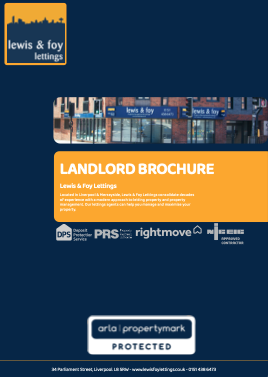Landlord Rental Increases in the UK Amid Rising Interest Rates and Inflation
Introduction
The UK rental market has experienced a substantial shift in interest rates, and building service charges continue to rise due to inflationary pressures. For landlords, this presents both opportunities and challenges. Increased rental income and better investment yields offer attractive prospects, but there are potential negative consequences, such as tenants' struggling to meet the new rental costs and rising living costs in general.
Positive Aspects: Higher Rental Income and Better Yield
As interest rates rise, landlords often face increased mortgage payments, driving them to seek higher rents to compensate for their additional costs. Simultaneously, the ongoing inflation has led to service charge increases for property maintenance and utilities (especially apparent in flats and apartments in the city). In response, landlords are raising rental prices to cover these costs and maintain their profit margins.
Buy-to-let mortgages in the UK are also currently experiencing a shift towards higher interest rates as their initial fixed or discounted rate terms come to an end. This transition can notably impact landlords' monthly mortgage payments - the figures can drastically change due to interest rates, making a once profitable buy-to-let suddenly become unprofitable.
Inflation, characterized by a general increase in the price levels of goods and services, significantly affects apartment service charges. As maintenance, utilities, security, and other amenities rise, property managers and landlords often pass these increased expenses on to tenants through higher service charges.
As a result, many landlords raise rental costs during increased interest rates, which generally improves their cash flow, financial stability and rental profit. The benefit for the landlord is apparent - more revenue. However...
Negative Issues: Tenants Struggling to Meet New Costs
While landlords may profit from higher rental prices, tenants can struggle to keep up with the increased costs (including further increases in living costs), even after agreeing to rental increases, to avoid being served notice. Wages haven't increased country-wide!
As rents rise, numerous tenants cannot afford their homes and are forced to search for more affordable housing. This can lead to higher vacancy rates and a more transient rental market, with landlords investing more time, money and resources into finding new tenants to meet the rental increase, often negating any rental growth in the short term. It can also lead to rental debt building up for the landlord.
The Costs of Finding and Managing New Tenants
Increased tenant turnover is not without its expenses. Landlords must bear the costs of advertising and marketing their properties, conducting background checks, credit checks, and handling administrative tasks for new tenancies. Moreover, general fees can add to the financial burden, as landlords may need professional services to efficiently find and manage new tenants. There is also likely to be a void period between the previous tenant moving out and the new tenant moving in, often costing a month's rental income, not forgetting that some potential tenancies fall through before they even move in!
An empty property during a tenant swap-over can be a financial drain for landlords, usually resulting in a month's rent loss. While necessary for preparing the property for new occupants, this vacancy period can negatively impact cash flow and overall profitability.
Maintaining a tenant on their current rent charge can be a strategic decision for landlords, particularly when they consistently pay rent on time and take good care of the property. A reliable, responsible tenant helps ensure a stable rental income and reduces the likelihood of property damage or costly repairs. By forgoing rent increases in the short term, landlords can foster a positive landlord-tenant relationship, promoting long-term tenancy and minimizing the risks and costs associated with tenant turnover. This approach can provide a more stable and profitable rental investment over time.
Tenant Requests for Property Improvements
As rental prices increase, tenants may demand more for their money, including better-quality accommodation and additional property improvements not mentioned. In response, landlords may need to invest in upgrades and repairs to maintain tenant satisfaction and remain competitive in the rental market. These improvements can be costly and further strain the relationship between landlords and tenants.
As rental prices increase, tenants may demand more for their money, including better-quality accommodation and additional property improvements not mentioned. In response, landlords may need to invest in upgrades and repairs to maintain tenant satisfaction and remain competitive in the rental market. These improvements can be costly and further strain the relationship between landlords and tenants.
Striking a Fine Line
Navigating the complex landscape of rental increases in the UK market requires a delicate balance. Landlords must consider both the potential benefits of higher rental income and the challenges of rising costs and tenant turnover. To succeed in this inflationary environment, landlords need to strike a fair balance between maintaining profitability and ensuring tenant satisfaction.
There are instances where landlords raising rents may not make financial sense, particularly when considering the broader implications of such decisions. Higher rents can lead to tenant dissatisfaction, causing tenants to vacate for more affordable properties. This, in turn, can result in costly tenant turnover, vacancy periods, and potential property damage. Additionally, raising rents excessively may price a property out of the local market, making it less competitive and more challenging to find new tenants. In these cases, it may be more prudent for landlords to maintain current rent levels to promote tenant retention and long-term stability, ultimately ensuring a more consistent income stream and yield.
In summary, the allure of increased rental income and improved yield can be tempting for landlords, but evaluating the potential repercussions for tenants and the overall rental market is essential. By thoroughly assessing the implications of raising rents and endeavouring to address the requirements of both landlords and tenants, a harmonious equilibrium can be attained within the dynamic landscape of the rental market.
Location
34 Parliament Street - Liverpool
Date
16th March 2023
Author

William Lewis BSc (Hons) MRICS
Join Lewis & Foy Lettings
Are you a landlord looking for a trusted letting agency in Liverpool? We are proud to offer landlords a seamless, no-fee transfer process to join our esteemed portfolio. With a commitment to excellence, we provide tailored solutions and unparalleled service to meet your unique property needs. Contact us today to arrange a consultation and discover how we can elevate your letting experience.
Download our Landlord Brochure to learn more about our services and how we can assist you. You can also view our online portal here.





